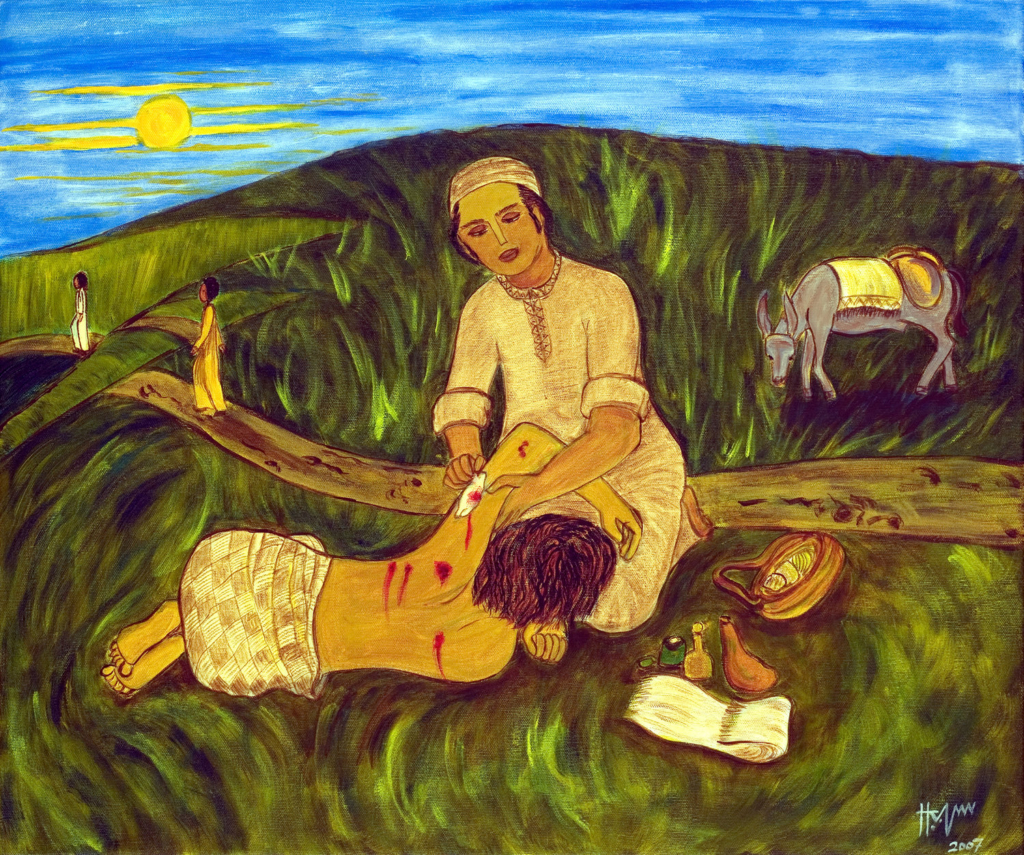On Love of Nation

On Love of Nation
Brian Zahnd
As followers of Jesus we are not commanded to love our nation. Rather, we are commanded to love God with all our heart and to love our neighbor as our self. Nation — whether we are referring to the modern nation-state or to its ancient meaning of ethnicity — is not a proper category for a priority of love. To prioritize love of one’s nation-state or one’s ethnicity will almost of necessity put us at odds with the commands we have received from Jesus Christ. We are called to love God supremely and then to love those around us with a co-suffering love — and we are to do this regardless of our neighbor’s citizenship or ethnicity. This is the basis for all Christ-informed ethics, and this is what Jesus sets forth in his parable of the Good Samaritan.
Jesus gives the parable of the Good Samaritan (Luke 10:25–37) in response to a question from a Torah scholar trying to wiggle out of loving his neighbor by asking for clarification on who actually constitutes a neighbor. The biblical scholar understood that Jesus had spoken correctly when he had identified love of God and love of neighbor as the heart of Scriptural revelation and the way that leads to life, but the scholar was looking for a loop-hole because there were obviously people he didn’t want to love, and Samaritans would certainly have been on his not-to-be-loved list. Thus his lawyerly question. This is the backdrop for the parable.
Jesus could have constructed his parable so that a noble Jew showed mercy to a Samaritan victim. This would have been a step in the right direction, but it would have kept the Jew in the superior role. Jesus’ parable is more subversive than that. Jesus casts his parable so that a Jew is the victim, and when fellow Jews fail to act in love, a compassionate Samaritan becomes the hero of the story. Jesus was challenging the Jewish tendency to look at Samaritans as two-dimensional villains. Jesus is essentially asking, “What are you going to do if the people whose ethnicity, nationality, and religion you scorn are more merciful than you? What if the one you’ve made an outsider treats you as a neighbor, what are you going to do then?”
Alexander Solzhenitsyn, who came to faith in Christ amidst deep suffering in a Soviet gulag, said the line that separates good and evil does not run between nationalities, ethnicities, religions, or political parties, but right through the heart of every person.
Martin Buber taught us to stop relating to others as I-It, but as I-Thou — that is, we must learn to recognize the image of God in every other person.
Rabbi Pinchas once asked his students how they could tell when the night had ended and the day had begun. One student suggested, “Could it be when you can see an animal in the distance and can tell whether it’s a sheep or a dog?” “No,” answered the rabbi. Another asked, “Is it when you can look at a tree in the distance and tell whether it’s a fig tree or a date palm?” “No,” answered the rabbi. “Then when is it?,” the pupils demanded. Rabbi Pinchas said, “It is when you can look into the face of any person and recognize them as your brother or sister. Until we are able to do that, it is still night.”
Alexander Solzhenitsyn, Martin Buber, and Rabbi Pinchas had all mastered the lesson given to us by Jesus in the parable of the Good Samaritan. Who is my neighbor? The person I have an opportunity to love, help, and alleviate their suffering. To say it pointedly, the biblical text case for love of God is love of neighbor, and the biblical test case for love of neighbor is love of enemy.
For the baptized, national citizenship is an “accidental” (a philosophical term for an attribute that does not alter the essence of a thing). Our true citizenship is from heaven (Philippians 3:20), and all nations are now under the reign of Christ (Revelation 11:15). For the most part, the nations of the world belong to the world that believers are called not to love (1 John 2:15–17).
I love God. I love my friends and family. I love my church. I also seek to love my neighbor — especially those near at hand for whom I can alleviate suffering. This will have to be enough. This is enough!
At the end of his parable Jesus asked the lawyer seeking to restrict his love to those within his own nationality, ethnicity, and religion this question: “Which of these three, do you think, was a neighbor to the man who fell into the hands of the robbers?” The lawyer replied, “The one who showed him mercy.” And Jesus said to him. “Go and do likewise.” Amen.
Let us walk the world as the mercy of God.
BZ
(The artwork is The Good Samaritan by Hannah Varghese, 2007)